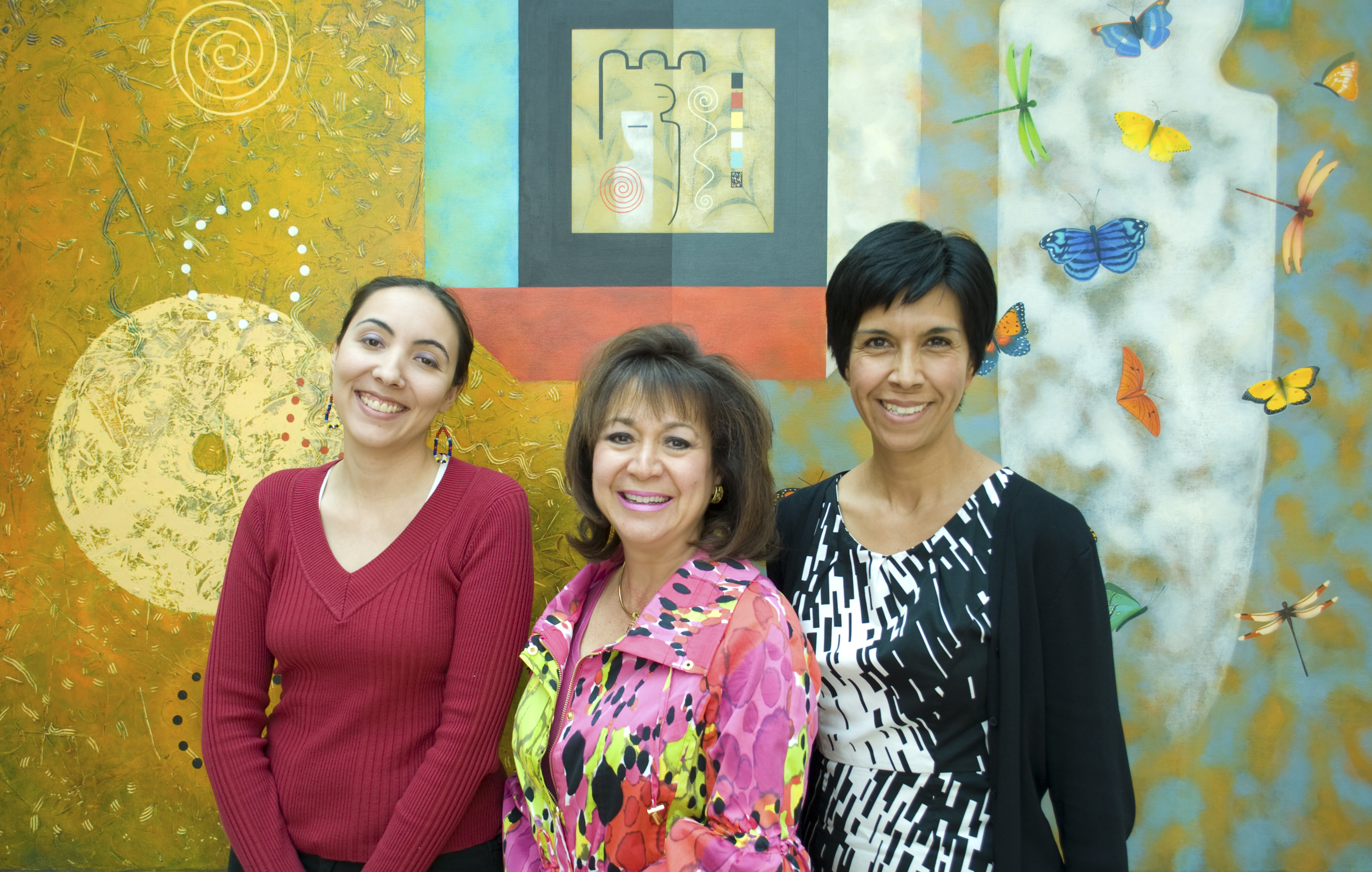New Mexico Cares
Health
Disparities Center
MSC09 5040
1 University of New Mexico
Albuquerque, NM 87131-0001
FAX: (505) 272-8045

Building partnerships between the communities of New Mexico and the University of New Mexico Cancer Center (UNMCC) is a priority for the UNMCC. Community outreach through educational and service programs has been an integral aspect of the Population Sciences program. Through these programs, more than 15,000 community members have been reached in the American Indian (AI) and Hispanic communities of New Mexico. However, in order to fully address the cancer burden in New Mexico communities, partnerships, not just reaching out into the community, need to be formed with specific populations. These partnerships are built upon a foundation of trust. Historically, certain individual, organizational, and governmental policies have created a legacy of mistrust with vulnerable populations by betraying their responsibilities in trust-based relationships. In populations that have experienced substantial betrayal of trust, such as American Indians (AIs), medical mistrust has justifiably limited the degree to which medical research can impact health outcomes for those communities.
AIs typically have poor outcomes following a cancer diagnosis. In New Mexico, AIs with cancer are diagnosed at later stages, and cause-specific survival for all cancers is poorer than in their non-Hispanic white counterparts. Contributing to high cancer mortality are patterns of late stage at diagnosis, cultural and systemic barriers to treatment, and limited funding for cancer treatment within the Indian Health Service. Research is needed to identify and develop interventions that improve cancer outcomes in AIs, but AI participation in research is typically poor. Important factors affecting AI participation in research include having trust in the researchers and being partners in the research process. Community-based participatory research (CBPR), an approach to research that emphasizes the process of partnering with community members throughout the research process from research question development to dissemination of research results , enhances trust building between researchers and community members.
The purpose of the proposed study is to identify key concerns in regional AI communities regarding medical research.
The specific aims of the study are to:
Important factors affecting AI participation in research include having trust in the researchers and being a partner in the research process 6. A CBPR approach to research with AI communities can enhance the development trust between researchers and community members. Often a CBPR approach to research may be more acceptable than conventional research approaches in marginalized communities. A few of the advantages for using a CBPR approach include: 1) increasing benefit of research findings, 2) increasing the quality and validity of data, 3) increasing the likelihood for overcoming distrust, 4) assisting in bridging cultural gaps and 5) improving health and well-being of involved communities. Community partners can provide context to research findings and the process of involvement can foster community members’ comfort with research data and results. A CBPR approach supports many of the recommendations for conducting appropriate research with Native communities. These recommendations consist of respecting tribal diversity, building on tribal strengths, prioritizing the needs of the community, ensuring that the community receives benefits from the research, and respecting tribal sovereignty. CBPR offers an approach for developing authentic partnership, collaboration, and co-learning. Participants for the AI Community Partnership Board will be selected using snowball sampling techniques. Eligible participants will be identified through consultation with key informants within the AI communities. Participants will have knowledge of and clear connections with their tribal communities, and will have a willingness to work with the UNMCC to build a program of research at the UNMCC that benefits the tribal communities they represent. Age, sex, and history of cancer diagnosis will not be considered inclusion or exclusion criteria. As cancer is a widespread problem within the tribal communities in the region, it is expected that key informants will have an interest in improving cancer outcomes for their populations.
Upon determination of participants in the AI Community Partnership Board, an appropriate time will be set for the focus group. Additional focus groups will be arranged according to participant interest in order to be inclusive of as many participants as possible. As is appropriate with tribal meetings, a meal will be provided for participants. During the meal, a brief education program explaining medical research and the importance of medical research in improving cancer outcomes will be presented. Following the presentation, dialogue regarding tribal participation in cancer research will be encouraged. A semi-structured interview guide for the focus groups will be developed in collaboration with key informants to aid in meeting the research objectives of this project. Focus group questions will ask for information regarding tribal priorities for cancer research in New Mexico, community reflections on the research process, and how AIs in New Mexico see tribal communities collaborating with the UNMCC in future research. The focus groups will be audio-recorded, and de-identified focus group transcripts will be analyzed using content analysis to identify common themes. Following analysis, findings will be member-checked with key informants for verification and clarification as needed.
For additional information please contact Barbara Damron, PhD, RN, 925-0470, bdamron@salud.unm.edu